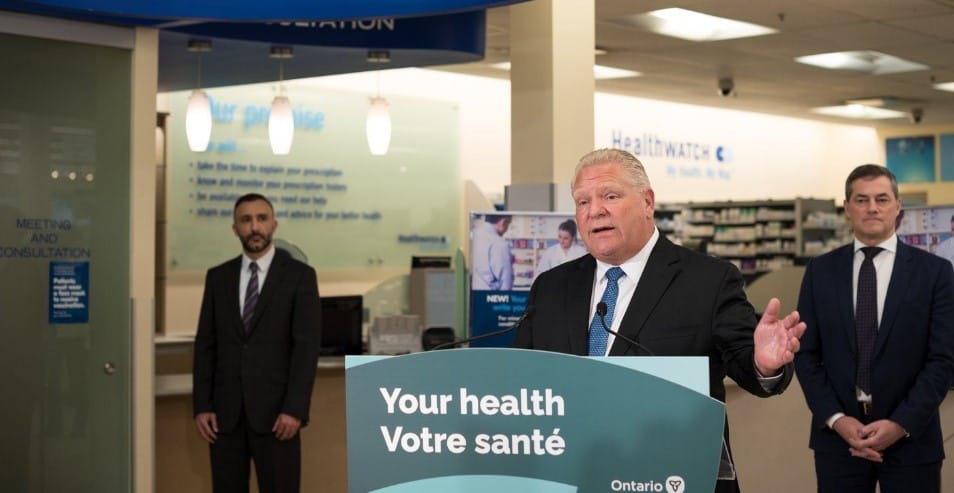Ontario is thinking about broadening the scope of practice for pharmacists to encompass more minor illnesses
The Ministry of Health is also seeking feedback on which lab tests and point-of-care tests pharmacists might need to order and perform for these conditions.

Ontario is proposing to broaden the role of pharmacists by adding more minor ailments they can assess, allowing them to administer a wider range of vaccines, and enabling them to order certain lab tests.
While pharmacists view this proposal as a necessary step to alleviate pressure on other parts of the healthcare system by utilizing their skills more effectively, some doctors have raised concerns.
In early 2023, pharmacists were granted the authority to assess and treat 13 minor ailments, such as pink eye, hemorrhoids, and urinary tract infections.
Later in the year, six additional conditions, including acne and yeast infections, were added. The new proposal aims to expand this list further to include ailments like sore throat, calluses and corns, mild headaches, shingles, and several others.
The Ministry of Health is also seeking feedback on which lab tests and point-of-care tests pharmacists might need to order and perform for these conditions.
Additionally, the government is considering funding pharmacists to administer a range of vaccines, including tetanus, diphtheria, pertussis, pneumococcal, shingles, and RSV vaccines for adults, alongside the COVID-19 and flu vaccines.
The proposal also includes allowing pharmacy technicians to administer the same vaccines.
Hannah Jensen, spokesperson for Health Minister Sylvia Jones, stated, “Our government is focused on improving access to care in communities across the province, and we have seen the success of our minor ailment program, connecting over 1 million people to treatment for minor ailments.”
Justin Bates, CEO of the Ontario Pharmacists Association, praised the minor ailments program and argued that expanding pharmacists’ roles could reduce visits to family doctors and emergency rooms.
“We want to build health-care capacity through looking at pharmacies as a health-care hub,” he said, noting that pharmacists are often underutilized.
However, doctors have voiced objections to these expanded roles. Dr. Dominik Nowak, president of the Ontario Medical Association, emphasized that pharmacists are not doctors and argued that diagnosing more serious conditions requires extensive medical training.
“The bottom line here is that pharmacists are not doctors,” he said. Nowak expressed concern that some symptoms indicative of minor ailments might actually be signs of more serious issues that require a doctor's expertise.
Bates responded by expressing disappointment with some doctors' responses and rejecting claims of increased risk to patient safety as “misinformation.”
He stressed the importance of not viewing the expansion of pharmacists’ roles as a threat to physicians. “It’s not a zero-sum game here,” Bates said, advocating for cooperation rather than conflict between different health professions.
The government’s proposal is open for public comment on its regulatory registry until October 20.





